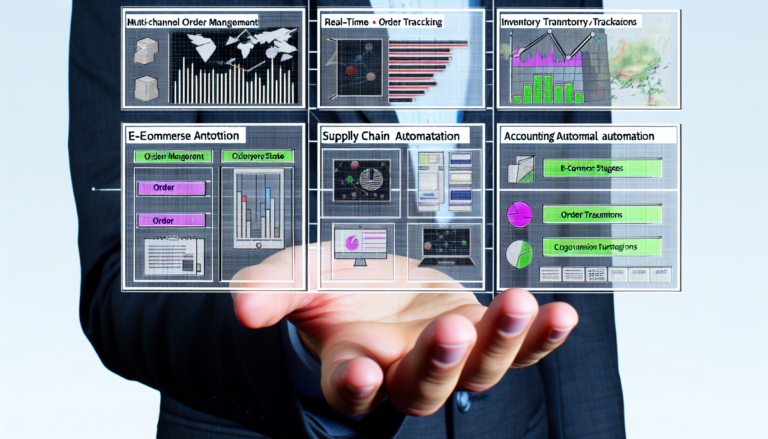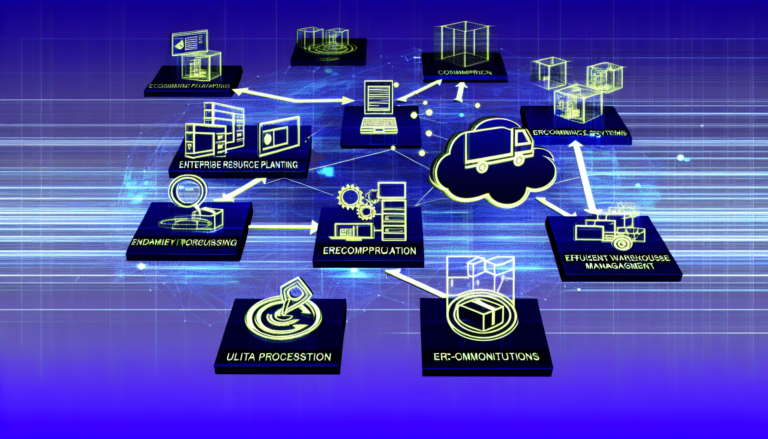After spending time, effort, and money finding the perfect ERP, you need an implementation strategy to ensure your work pays off. For a successful ERP implementation, you should follow these 7 effective tips.
1. Precisely define your goals
It’s a common mistake for businesses to start the implementation process without considering that the ERP is a means to an end goal. An ERP can have several benefits for businesses, so it’s easy to just begin the implementation and see which ones you reap. But this is not the right choice because your implementation should be centered around accomplishing this goal.
A goalless implementation is not as impactful as a focused one. Determine your business, the current problems the ERP will solve, and the Key Performance Indicators (KPI) to set a standard by which the ERP’s success can be judged. You should also map out the expected timeline, and steps of the ERP implementation, and set a budget.
2. Create a project team
Once you’ve defined the goals, it’s time to assemble a task force of your best to lead the implementation process. Your team should be full of people from departments that are vital to the operation of your ERP. You need to have a mix of people from upper management to lead the process and selected employees from different levels who will be impacted by the ERP to understand their problems at the ground level.
Every team should have a leader who motivates the team and keeps track of the progress to ensure everything is done at the right time. The project team leader should be familiar with the ins and outs of operations and be a friendly professional who can build relationships with the key people involved.
3. Create a strong training program
Your employees are the ones who will be using the ERP software every day, so it’s vital to get them up to speed on the working of it through extensive training. You need to allocate time and resources, and bring in experts to help your staff familiarize themselves with the software.
Before the software kicks into action, your staff should have a good idea about its workings. You should be patient and expect a learning curve. Account for mistakes that may occur along the way. Ensure that everyone is on board before the implementation begins to address concerns beforehand.
4. Outline a plan from the management’s perspective
When you inform your employees of an ERP system implementation and that some tasks may be automated, many will start to fear their job security and be resistant to change. Management needs to account for these things and take an empathetic approach to get people on board.
Management needs to understand the best ways to communicate all the changes that will take place, hold Q&As to understand the employee perspective, map out the process for de-escalating and addressing major concerns, and streamline communication between management and employees all around.
5. Create a data migration plan
You need to work with your implementation partner to decide how data will migrate into your ERP. Let team leaders work with smaller departments to determine the unnecessary and inaccurate data that can be left behind to keep the ERP system running efficiently. Also, ensure that the data is clean to prevent issues with the ERP. Know that the process might be longer for older systems to decide on a realistic timeline for the data migration. To reduce the time taken, you can start the data migration before the implementation begins.
6. Run thorough tests
Before implementation, you should be testing every aspect of the ERP. You should test individual systems, how well they work together, and overall systems to ensure everything is working in unison. Testing will help you better identify the problems you might run into along the way, and curb them before it goes live.
7. Provide continuous support
You may think your work is done after the ERP system goes live, but you will need to set up a post-implementation group to provide continuous support to your employees. This system should scope out the process for problem-solving, onboarding support for new employees, and divide work between the internal IT team and the ERP partner.
Conclusion
An ERP can be a game-changer for your business by giving you greater growth opportunities. If you’re an eCommerce business looking for an ERP, check out Kentro. We provide the best-in-class ERP solutions for eCommerce businesses to help you streamline your operations so your employees can focus on what they do best.


